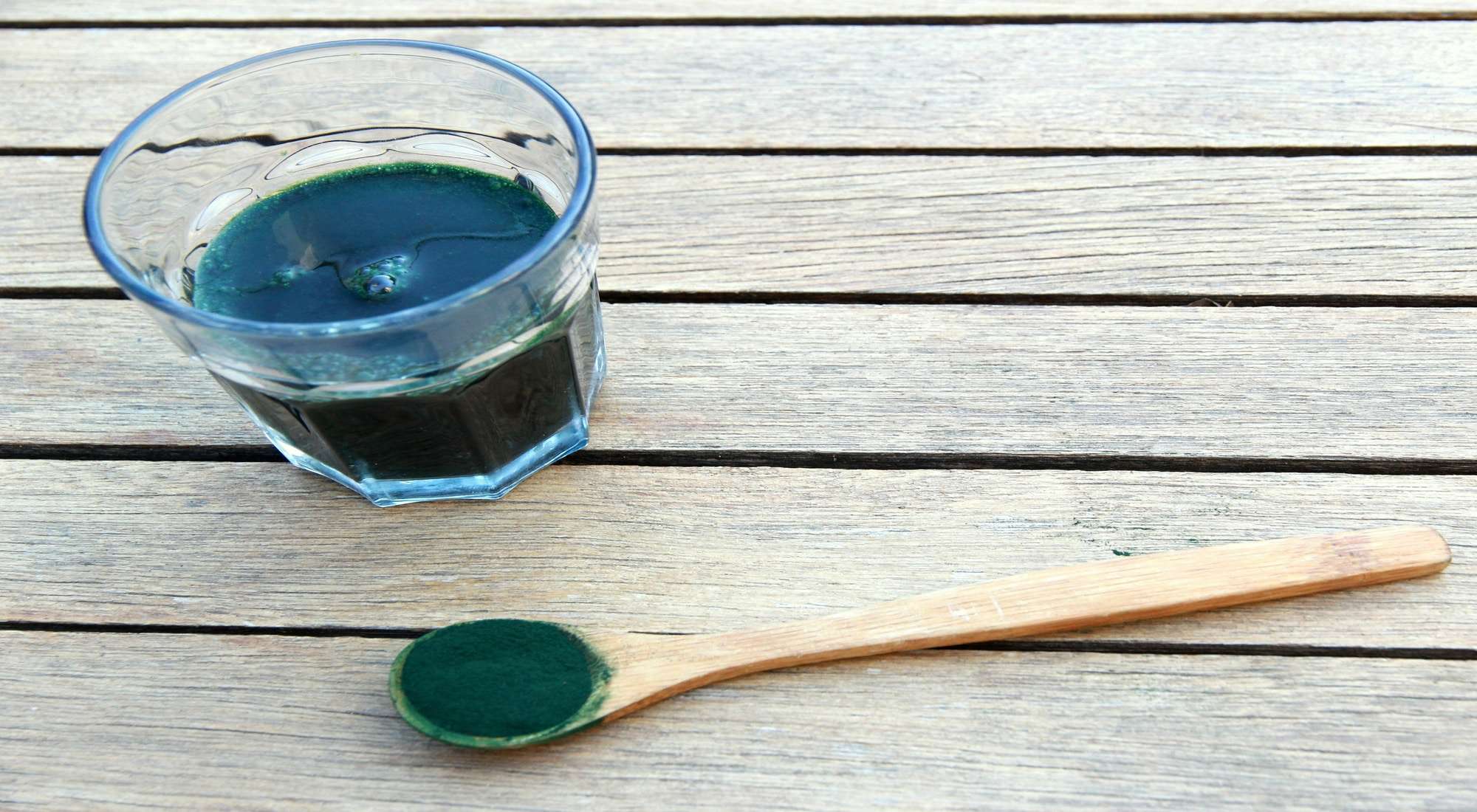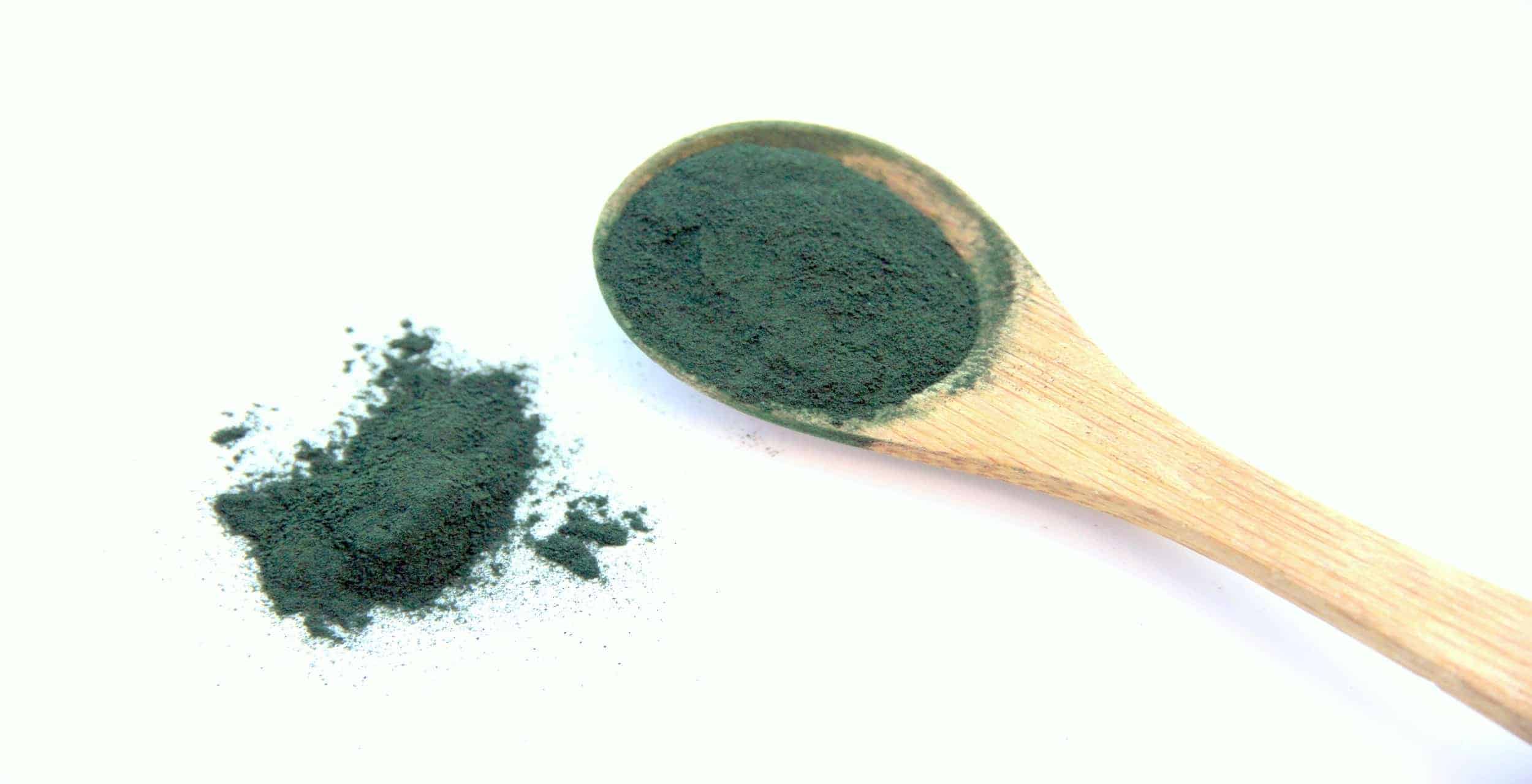Spirulina, a blue-green alga, is one of the world’s most researched algae and well-known dietary supplement. Health benefits of spirulina are innumerable as it contains vast amount of nutrients.
Nutrient Facts of Spirulina
Spirulina is rich in nutrients and vitamins that benefit your health. It contains vitamins A, B, C, E along with minerals like magnesium, zinc, calcium and selenium. In fact, selenium and vitamin C both help prevent any damage to our tissues and cells and protect against oxidative damage. Research also suggests spirulina has inflammation properties and the ability to help regulate our whole immune system. As such, it benefits our immunity.
Besides, this nutrient dense food also contains rich source of protein and iron. As a result, making it an exceptional dietary supplement choice for vegan. The proteins in spirulina is around 60% – 70% of its dry weight. It contains all the necessary amino acids your body needs but cannot produce on its own. For this reason, making it a plant-based source of “complete protein”.
Spirulina provides excellent health benefits to human body. Many people do consider it as “superfood”. By consuming a right amount of spirulina in your diet, you might stay well-nourished.
To date, researchers have carried out many studies to examine the health benefits of spirulina and address what is spirulina good for.
Below are 5 promising health benefits of spirulina supported by research studies.
Health Benefits of Spirulina
Prevent Heart Disease by Reducing
Cholesterol & Blood Pressure
Heart and circulatory diseases are among the world’s leading causes of death. High cholesterol level increases the risk for heart disease. In reality, consuming spirulina actually helps with the reduction of cholesterol level. A 2016 research study showed that consuming spirulina helped lower total cholesterol. It reduced “bad” LDL cholesterol among the test group. Researchers conducted another prospective study in 2013 for three months. They found that one gram of spirulina per day lowered the total cholesterol level.
The lowering of cholesterol level generally helps control one’s blood pressure. A study further supported this claim. Participants took 4.5 grams of spirulina every day during the research study. After that, they showed a lower blood pressure level with the normal level. The increased production of nitric oxide widened their blood vessels. Another study conducted in 2016 was about consuming spirulina for consecutive three months. The result showed a reduction in blood pressure among people who had hypertension.
Spirulina acts as a strong aid in lowering cholesterol and blood pressure level. As a result, playing a vital role in the prevention of heart disease. A 2013 study supports this by suggesting that blue-green algae are anti-inflammatory. It helps lower cholesterol level thus help prevent heart disease.
Protect Against Oral Cancer
with its Anti-Cancer Properties
Evidence shows that Spirulina has anti-cancer properties. As such, spirulina may offer some protection against oral cancer. Researchers carried out a 12-month study in India. Participants were diagnosed with precancerous lesion in the mouth. They found that a daily dose of spirulina helped cleared up the lesions among 45% of the participants. And without further taking spirulina, nearly half of them redeveloped the lesions afterwards. This shows that spirulina appears to be effective against precancerous lesion.
Manage Diabetes Level through
Lowering Blood Sugar Level
Type 2 diabetes people participated in a two month study. They consumed 2 grams of spirulina every single day during the research study. At the end, there was a notable reduction in their blood glucose level. Another review study taken place in 2018 further supports this finding. The intake of spirulina supplements helped lower fasting blood glucose levels. In actual, people with diabetes type 1 and 2 tend to have high fasting blood sugar level. Hence, this suggests spirulina supplements can help control diabetes level.
Improve Allergic Rhinitis
by Fighting Allergic Symptoms
Allergic Rhinitis is common among individuals. The main cause is the triggering of allergens through dust, pets and other environmental factors. This results in inflammation and congestion of nasal passageways. Recent study shows spirulina is an effective alternative to reduce allergic symptoms. The study found that consuming spirulina improved symptoms like sneezing and nasal congestion. Spirulina is also proved to be more clinically effective on allergic rhinitis than placebo.
Enhance Endurance and Muscle Strength
Physically active people and athletes may suffer from muscle fatigue. Studies found that consuming spirulina supplements enhanced endurance and muscle strength among participants. As a result, increased their exercise performance and time to fatigue.
Though there are numerous health benefits of spirulina. For instance, it helps improve cholesterol and blood pressure level, fight against allergic symptoms as well as increase muscle strength. There is a need for further research studies and clinical trials before any strong claims about spirulina can be made.
Side Effects of Spirulina
Avoid spirulina if you are allergic to seaweed, seafood or other sea vegetables. If you are pregnant or have an autoimmune disorder, phenylketonuria (PKA), you should not consume spirulina.
Spirulina also contains salt as 73mg of sodium is found in one 7g tablespoon. If you have high blood pressure or issues with salt, check with your doctor before consuming.

Spirulina can be consumed as a dietary supplement or in powder form. The daily dose to take in is 1-3 grams but 10 grams doses have also been used effectively. Spirulina powder of 7 grams or one tablespoon contains the following key nutrients:
- Carbohydrate: 1.67g
- Calcium: 8mg
- Fat: 0.54g (include omega-6 and omega-3 fatty acids)
- Iron: 2mg
- Protein: 4.02g
- Other nutrients such as magnesium, potassium, copper, vitamins, to name but a few.
You can sprinkle spirulina powder on your salads or stir one tablespoon into your juices. You may even add into your smoothies to enjoy this “superfood”. Make sure to buy spirulina from reputable brands to assure the quality.
Again, speak to your healthcare advisor before making any changes to your diet.
Article Sources
HealthxTips is committed to delivering content that adheres to highest standard for accuracy, sourcing and objective analysis.
HealthxTips uses only high-quality and trustworthy sources to support the facts in our articles.
1. Miczke, A., Szulińska, M., Hansdorfer-Korzon, R., Kręgielska-Narożna, M., Suliburska, J., Walkowiak, J., & Bogdański, P. (2016). Effects of spirulina consumption on body weight, blood pressure, and endothelial function in overweight hypertensive Caucasians: a double-blind, placebo-controlled, randomized trial. European review for medical and pharmacological sciences, 20(1), 150–156.
2. Ku, C. S., Yang, Y., Park, Y., & Lee, J. (2013). Health benefits of blue-green algae: prevention of cardiovascular disease and nonalcoholic fatty liver disease. Journal of medicinal food, 16(2), 103–111. https://doi.org/10.1089/jmf.2012.2468
3. Mathew, B., Sankaranarayanan, R., Nair, P. P., Varghese, C., Somanathan, T., Amma, B. P., Amma, N. S., & Nair, M. K. (1995). Evaluation of chemoprevention of oral cancer with Spirulina fusiformis. Nutrition and cancer, 24(2), 197–202. https://doi.org/10.1080/01635589509514407
4. Parikh, P., Mani, U., & Iyer, U. (2001). Role of Spirulina in the Control of Glycemia and Lipidemia in Type 2 Diabetes Mellitus. Journal of medicinal food, 4(4), 193–199. https://doi.org/10.1089/10966200152744463
5. Huang, H., Liao, D., Pu, R., & Cui, Y. (2018). Quantifying the effects of spirulina supplementation on plasma lipid and glucose concentrations, body weight, and blood pressure. Diabetes, metabolic syndrome and obesity : targets and therapy, 11, 729–742. https://doi.org/10.2147/DMSO.S185672
6. Cingi, C., Conk-Dalay, M., Cakli, H., & Bal, C. (2008). The effects of spirulina on allergic rhinitis. European archives of oto-rhino-laryngology : official journal of the European Federation of Oto-Rhino-Laryngological Societies (EUFOS) : affiliated with the German Society for Oto-Rhino-Laryngology – Head and Neck Surgery, 265(10), 1219–1223. https://doi.org/10.1007/s00405-008-0642-8








0 Comments